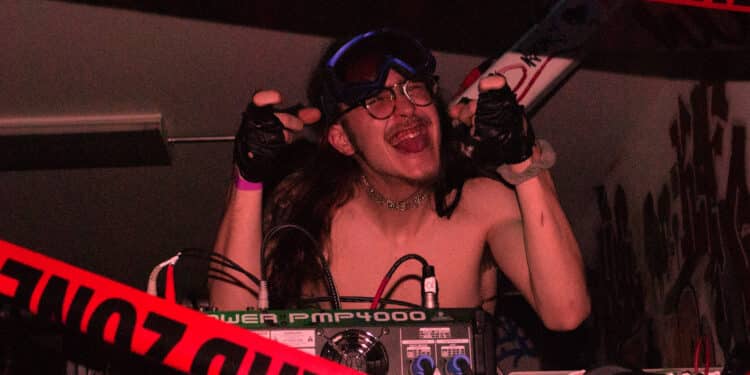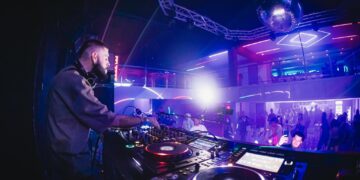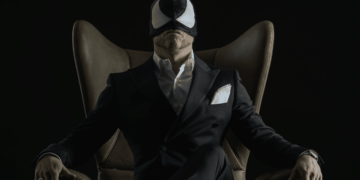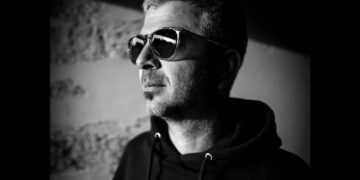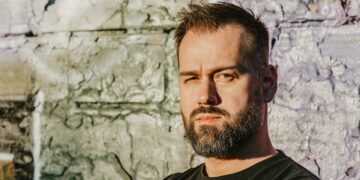Trap producer VILLA swings by to shine a light on her innovative concept series, ROGUE.
Electronic music in the 2010s was largely defined by the popularity of big room and trap sounds. Bringing forth some of the most noteworthy producers in EDM, the trap genre blended elements of hip-hop trap with the stylings of electronic and pop music. After taking the backseat as future bass and melodic dubstep took over the rave scene, trap is back on the map in a big way. One of the newest creatives reviving the trap genre is Los Angeles-based producer VILLA.
Since breaking into the scene, VILLA has garnered support from trap legend RL Grime, releasing two tracks with his innovative label, Sable Valley. With an official remix for Alison Wonderland and multiple features on Spotify‘s Trap Mojito and Fresh Finds Dance playlists, VILLA has been steadily creating a name for herself as one of the brightest stars in the underground scene.
As trap music continuously evolves, so does VILLA’s sound. With the rollout of her three-track concept series, ROGUE, she pushes boundaries as she puts forth a series of bold and authentic tracks spawning from her personal and artistic journey. Exploring a darker, heavier side that listeners have yet to hear, the first two releases, “ONMYMIND” and “ALLNIGHT,” have been met with support — the latter receiving a feature on the esteemed Trap City’s YouTube channel.
With the final track of ROGUE set to drop on February 26, we caught up with VILLA to discuss the evolution of the project, her role as a voice for women in the trap scene, and how social media has played a role in her success. Read on to learn more about VILLA and her forthcoming conclusion to the ROGUE series, “LOSECONTROL.”
Stream VILLA – “ALLNIGHT” on Spotify:
ROGUE, your three-track concept series, concludes with a grand finale on Wednesday, February 26. What was the inspiration that brought this project to life?
ROGUE was a project that came to me during a creative rut last summer. Everything I was seeing on social media, and hearing in new releases felt like it was all blurring together. It felt like everyone was trying to fit into the same box and it was leading me to feel very uninspired. I started really pushing myself outside of my comfort zone in my production by experimenting with unique sounds and my own voice for the first time, and that’s when the music for ROGUE started to appear.
The definition of “rogue” means to go against the grain, and the slogan for ROGUE has been “a project for people who are sick of the same thing.” I chose that phrase because that’s exactly what this project was for me: an opportunity to go against the grain. I wanted ROGUE to resonate with fans as something sonically and visually different than what they have seen from me or other artists in the past.
While you’re known primarily as a producer, your tracks for ROGUE also showcase your vocals. Can fans expect to hear more of your vocals in future releases?
Absolutely. I really can’t sing, but I have been told that I have a nice speaking voice and I felt like recently there’s been a rise in speaking vocals on EDM tracks — particularly female speaking vocals. I also wrote songs and poetry a lot as a kid and I really enjoy reading, so being able to write lyrics and phrases to then use in my tracks with my own voice has been super enjoyable.
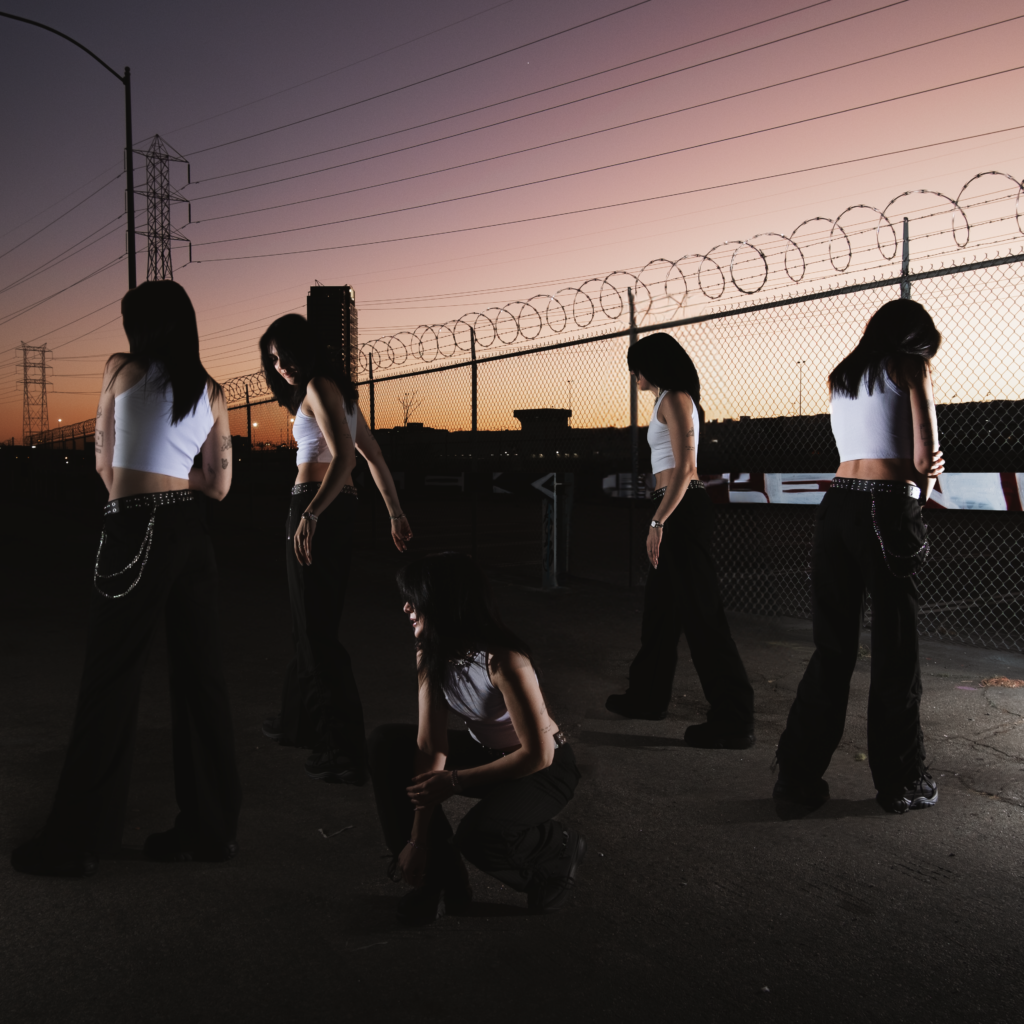
“LOSECONTROL” is your final piece for ROGUE. How does this heavy-hitting bass track serve as the perfect conclusion to the series?
Early on in my VILLA project, I think I was definitely typecast as more of a melodic producer. As I’ve improved in my production, I’ve started experimenting with heavier sounds, and I wanted ROGUE to be an opportunity for me to show everyone what I can do as a producer. “LOSECONTROL” is my favorite track in the series, so I wanted to save the best for last and really shock everyone with it. I think the concept of “losing control” fits well with the definition of the word rogue and the concept of going against the grain.
While the electronic scene has seen a rise in female DJs, the industry remains male dominated. What does it mean to you to be one of the women championing the trap sound?
It’s a challenge because there are just so few women in trap specifically. I feel a big responsibility when it comes to gender representation in the genre. A lot of times, a lack of women in a particular field just comes from a lack of existing and consistent representation, so I take my role in being that consistent pretty seriously. I’m here to stay in this genre and I want to do my part in leveling the playing field for any young girl out there who dreams of being a trap DJ one day.
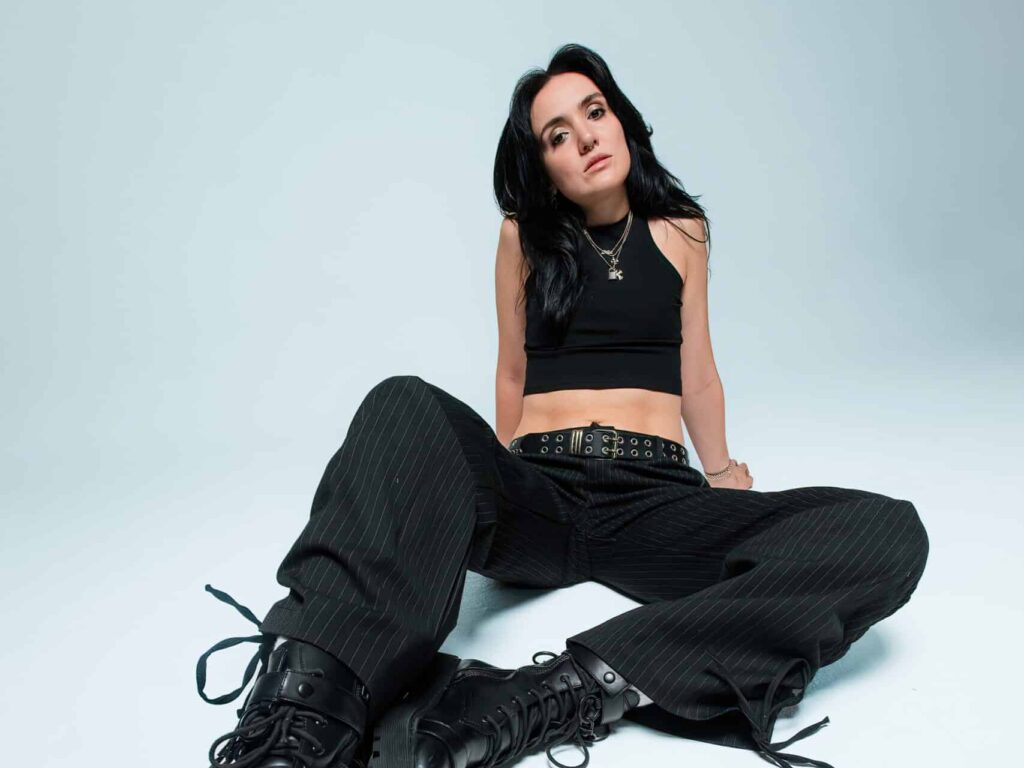
You recently landed an official remix of Heidi Montag’s “I’ll Do It” after gaining traction on TikTok. How has the platform played a role in your journey as an artist?
I’ve had a love-hate relationship with the content era of my journey as an artist. When I first started DJing and producing it didn’t exist, so it was never something I took very seriously until I realized it wasn’t optional anymore. Just like making music, it’s definitely a skill I’ve had to learn to develop over time, and learning to use it in a way that feels authentic to me as a person and artist has been challenging. When there are moments where I have a piece of content go viral or I get attention from larger artists like with my Heidi remix, it’s an incredible tool. However, it’s definitely been a day-by-day skill I’ve had to learn to develop rather than something that has come super naturally to me.
If you could collaborate with any other female artist — in electronic music or beyond — who would it be and why?
Definitely Charli XCX. The Brat album was a huge inspiration behind ROGUE and a huge influence on me wanting to start using my own voice on my tracks. I think Charli’s ability to build a world for her listeners with that album is astonishing, and I’ve loved the development of her sound as an artist in collaboration with her producer A.G. Cook.
Lastly, what advice would you give to up-and-coming producers who are ready to take the next step in their careers but aren’t sure where to start?
If you want it badly enough, it will happen. Starting small, breaking down steps, and not letting yourself get overwhelmed is really key for staying on track. Don’t compare yourself to others; everyone is on their own path. Don’t try to network. Focus on being a real, genuine person and building genuine friendships because that is what drives sustainability in this industry. Artistry is a lifelong journey that won’t happen overnight. The headliners you see at the top of festival lineups have been at it for years, and anything worth doing takes a lot of time and commitment, so don’t give up.



